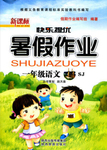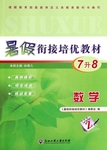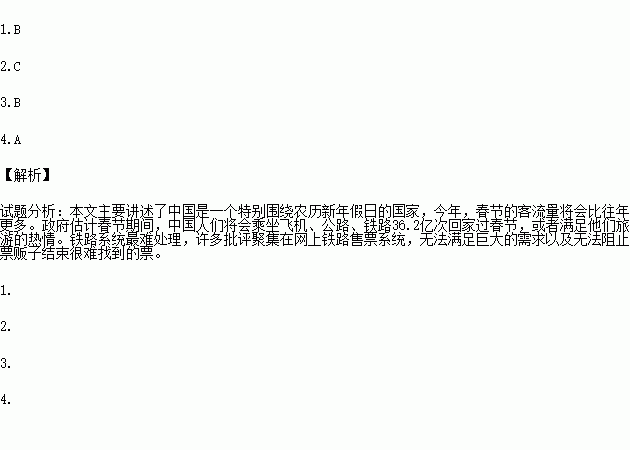题目内容
China is a country on the move—especially around its Lunar New Year holiday. This year, the holiday crush(客流量) promises to be even heavier than before.
Government officials estimate that Chinese people will take to the air, roads and railways 3.62 billion times over a 40-day period around the nation's most important holiday this year as people push their way home for family gatherings or to satisfy their new-found passion for travel.
Getting tickets to all those would-be travelers is a discounting challenge that annually tries patience. And it is the railway system that routinely is most unable to cope. Railways are the transport of choice for low-cost long-distance travel, and that's where the ticketing system routinely falls down.
Much of the criticism has, focused on the railway's online purchasing system, which has been unable to keep pace with the huge demand and also failed to stop scalpers(票贩子) from ending up with many of the hard-to-find tickets.
While insisting that online sales were the fairest way to get tickets for travelers, railway officials told reporters that the public need to be patient. Efforts were being made to provide online identity checks that would reduce the ticket scalping problems. While officials had little good news for rail passengers, they did manage to bring a few smiles to those traveling by car as the country's extremely expensive highway tolls (通行费) will be free of charge for the period of the official holiday.
1.Which of the following words can replace the underlined word "discounting" in Paragraph 3?
A. Promising.B. Discouraging.C. Pleasing.D. Rewarding.
2.According to the text, getting tickets ________ around the official holiday.
A. is just a piece of cake
B. is more costly
C. takes great effort
D. is convenient for travelers
3.We can learn from the text that ________ around the New Year holiday.
A. there will be 3. 62 billion people going home
B. the railway system will be facing more stress
C. people's complaint .focus on the failure of online purchase
D. not railways but cars are the best choices for traveling
4.Which of the following can best describe the author's attitude to the railway service?
A. Objective.B. Doubtful.C. SatisfiedD.Worried.
 新课标快乐提优暑假作业陕西旅游出版社系列答案
新课标快乐提优暑假作业陕西旅游出版社系列答案 暑假衔接培优教材浙江工商大学出版社系列答案
暑假衔接培优教材浙江工商大学出版社系列答案
